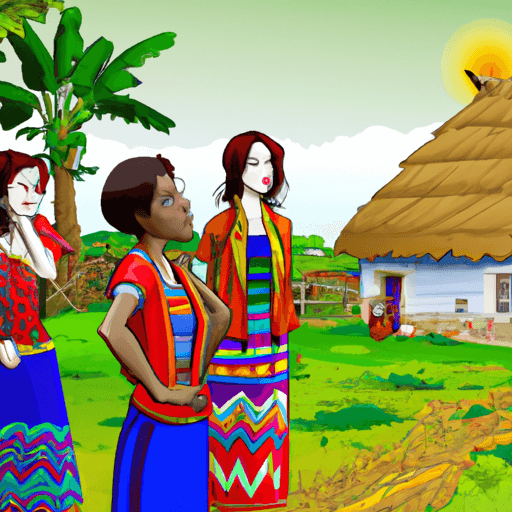The Impact of Tourism on Local Communities and Cultures
Tourism has been one of the fastest growing industries in the world, and its impact on local communities and cultures is undeniable. While some of the effects of tourism can be positive, such as increased economic growth and international awareness of a particular culture, there are also potential negative impacts that need to be considered. In this article, we will discuss the effects of tourism on local communities and cultures, including economic growth, traditions, language, and society.
Economic Growth
The influx of tourists to a certain area can bring a great deal of economic growth to a local community. Tourists often purchase goods and services from local businesses, which in turn helps to stimulate the economy. Furthermore, many communities rely heavily on tourism as an important source of revenue. For example, in many coastal towns, tourism is the largest employer, and provides much-needed jobs and wages to the local population.
While tourism can be a great boost to the local economy, it is also important to consider the potential negative impacts. For example, if tourism is not managed properly, it can lead to an over-saturation of the market, driving prices too high and making it difficult for locals to afford basic goods and services. Additionally, if a community becomes overly reliant on tourism, it can make them vulnerable to economic downturns in the tourism industry.
Traditions
The influx of tourists to an area can also have an effect on the local traditions, both positive and negative. On the positive side, tourism can help to preserve and celebrate traditional cultures. Tourists often come to a certain area to experience and appreciate the local culture, which can lead to increased awareness and appreciation of traditional customs and practices. Additionally, tourism can also bring new ideas and cultural exchanges, which can help to foster innovation and creativity within a community.
On the other hand, there can also be some potential negative impacts of tourism on local traditions. For example, increased tourism in an area can lead to a homogenization of culture, as tourists come to expect certain experiences and attractions. This can lead to a loss of unique cultural practices and a decrease in local autonomy. Additionally, tourism can also lead to the commodification of certain aspects of culture, such as traditional dances or crafts, which can devalue the cultural significance of these practices.
Language
Tourism can also have an impact on the local language. On the positive side, tourism can help to spread a language by introducing it to a larger, international audience. This can lead to increased awareness and appreciation of the language, as well as increased opportunities to learn and use the language. Additionally, tourism can also provide economic opportunities for those who are fluent in the local language, as they are better equipped to provide services to tourists.
However, there can also be some potential negative impacts on language due to tourism. For example, the influx of tourists can lead to the introduction of foreign languages, which can lead to the decline of the local language. Additionally, tourists may also introduce new words or phrases, which can lead to confusion and a lack of understanding of the local language.
Society
The influx of tourists to an area can also have an effect on the local society. On the positive side, tourism can increase social interaction and intercultural understanding, as locals are exposed to a wider variety of people and cultures. Additionally, tourism can also lead to increased economic opportunities for the local population, as well as increased awareness and appreciation of the local culture. However, there can also be some potential negative impacts of tourism on society.
For example, tourism can lead to increased competition for resources, such as housing and jobs, which can cause tension between locals and tourists. Additionally, the influx of tourists can lead to increased crime, as well as increased pressure on the local infrastructure, such as roads and transportation. Finally, tourism can also lead to a decrease in the sense of community, as locals may feel overwhelmed or neglected by the influx of tourists.
Conclusion
The impact of tourism on local communities and cultures is undeniable. While tourism can bring economic growth, increased awareness of local traditions, and new opportunities for locals, it is also important to consider the potential negative impacts, such as competition for resources, increased crime, and decreased sense of community. It is therefore important to consider all of the potential impacts of tourism before making decisions about how to manage and regulate tourism in a particular area.

















Comments
Leave a Comment